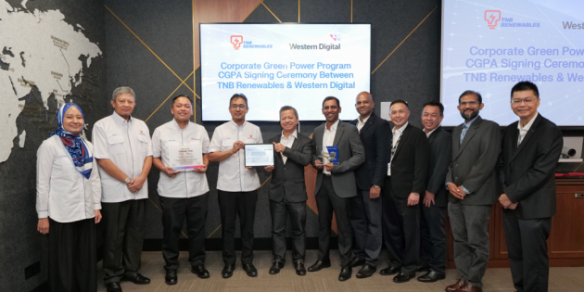Asian countries battle IP ‘maximalism’ in leaked TPP chapter: Page 3 of 3
By Dr Jeremy Malcolm November 19, 2013
 Civil enforcement
Civil enforcement
Moving on again to the section on civil enforcement of intellectual property rights, no country is opposing the availability of “remedies which constitute a deterrent to future infringements.”
However, all but the United States and Japan are sensibly opposing a provision that would allow judges to consider “any legitimate measure of value the right holder submits, which may include lost profits, the value of the infringed goods or services measured by the market price, or the suggested retail price” in awarding damages for copyright infringement or trademark counterfeiting.
To support this sweeping provision would be to accept the long-debunked proposition that each pirated product equates to a lost sale.
More broadly accepted is the proposal to allow either “pre-established damages, which shall be available upon the election of the right holder; or additional damages,” and only Vietnam opposes the proposition that those pre-established damages should be calculated “with a view to deterring future infringements.”
This is, however, troubling, because there is no need that the infringement was wilful before additional damages would become available. How does an award of pre-established damages deter the recurrence of conduct that was not intentional to begin with?
Criminal enforcement
Things get worse when it comes to criminal enforcement, and the key question here is the definition of “commercial scale” infringement which triggers criminal liability.
The US position, supported by Australia, Singapore and (strangely) Peru, but which the others oppose, would criminalise even “significant wilful copyright or related rights infringements that have no direct or indirect motivation of financial gain.”
In other words, the operators of non-profit websites could end up with a criminal record simply for facilitating the sharing of fan art, fan subtitles, remixes or mashups.
Another new provision, currently riddled with brackets, would also apply criminal sanctions to camcording in a movie theatre.
It's difficult to know how far it would extend, but if the US language is accepted, it would include even recording one or two clips for an online review. It is doubtful whether such conduct should even be a civil offence, let alone a criminal one.
A similar provision would make it a criminal offence to distribute devices for decrypting satellite, and perhaps cable television signals.
ISP liability
On the topic of liability of Internet intermediaries such as ISPs (Internet service providers), content hosts and search engines for the copyright infringements of their users, there are again two competing proposals: A lengthy and complex US proposal, and a simpler proposal by other countries.
The US proposal (supported by Australia and Singapore) requires a ‘notice and take down’ regime, which limits the liability of intermediaries for copyright infringements committed by users, only if they take down the infringing content once notified about it.
The user is also entitled to issue a counter-notice requiring the content to be reinstated or for the question of infringement to be tried before a court; however until this happens, the content remains offline.
The copyright owner is also entitled to receive personal details of the alleged infringer, through an administrative or judicial order.
One of the most threatening aspects of the US notice and take-down proposal (specifically opposed by Malaysia and New Zealand) is that the intermediary is required to have a policy that requires for termination in appropriate circumstances of the accounts of repeat infringers, such as the much-criticised ‘three strikes’ policy that France first adopted, allowing users to be disconnected from the Internet.
Although this policy was strongly criticised by the UN Special Rapporteur on Freedom of Expression, and has since been scaled back, similar schemes have since been introduced in New Zealand, the United Kingdom, South Korea and the United States.
Under the same US proposal, intermediaries are also required to adopt automatic tools to scan and identify allegedly copyright-infringing content as it is uploaded or transmitted, such as those that identified birdsong as a copyrighted work.
The simpler proposal supported by Malaysia, Vietnam, Singapore, Brunei, New Zealand, Canada, Chile and Mexico is similar in that it also limits the liability of intermediaries for copyright infringements that take place using their networks or services, and lays down procedures for such intermediaries to pass on notifications of claimed infringement, and to remove or disable access to infringing material.
Interestingly the intermediary's liability for a given instance of copyright infringement does not appear to be conditioned on their compliance with those procedures, though each party is required to provide legal incentives for intermediaries who do comply, or remedies against those who don't.
This means that blocking infringing content on receipt of a notice of claimed infringement may be one way for an intermediary to gain protection from liability – but unlike under the American proposal, it is not the only way.
Thinking laterally, a country would also be compliant with this TPP proposal if it paid the intermediary a rebate for every notice of claimed infringement that it passed on, even if that rebate was funded by a levy on copyright owners.
It is therefore a much more flexible proposal than that of the United States, though at the same time exactly what it means for Internet users depends on how it is implemented in each country.
As such, we cannot judge the inclusion of this proposal in the TPP as being unequivocally problem-free.
 Conclusion
Conclusion
The leak of the TPP's IP chapter confirms that we were all right to be worried – the TPP is indeed bad news.
Using the cover of a trade agreement, which was once used to negotiate mutual reductions in import tariffs, the TPP also seeks to make significant, permanent changes to the intellectual property laws policies of the countries of the Asia Pacific region – not to mention the many other significant legal and regulatory changes contained in other chapters of the agreement.
Whilst there may have been some justification in negotiating tariff rates behind closed doors, there is no justification to change intellectual property laws in the same opaque and unaccountable fashion.
These are issues on which the public has a right to know what is being negotiated on their behalf, and to participate in shaping those negotiations.
The leaked IP chapters reveal that there are countries that have failed to live up to their democratic responsibilities in the closed club of TPP negotiations.
Does it really serve the interests of American consumers for temporary electronic copies to be licensed from copyright owners, even if this puts the Internet in jeopardy?
Do Mexican consumers really have an interest in pushing a life plus 100-year copyright term to the rest of the region, leaving Franz Kafka's works still under copyright today?
Why is Australia bucking the recommendations of its own IT pricing inquiry in pushing for tougher limitations on the circumvention of digital locks?
But conversely, we should also acknowledge that some countries are putting forward solid, consumer-friendly alternatives to some of those extreme copyright-maximalist proposals.
These contributions could be the saviour of the TPP for consumers if, despite our wishes, the agreement is pushed through regardless.
These include innovative proposals from Chile, Vietnam and Peru to uphold the public domain, a Mexican proposal to preserve parties' flexibility to refuse recognition of software patents, and alternative and more flexible approaches to the vexed questions of digital locks and ISP liability.
The TPP doesn't deserve to succeed – but if it will anyway, we need to take a more nuanced approach to it than just opposing the text's most extreme positions. We also need to recognise those provisions that could serve consumers relatively well.
Whilst maintaining our call to stop the TPP if the negotiators won't let us be a part of it, we can also, quite consistently with that, demand that any new treaty or agreement should be based around provisions that are in the broad public interest rather than narrow corporate interests – and there are some such provisions in the leaked TPP text, that deserve our qualified support.
Dr Jeremy Malcolm is an Internet and Open Source lawyer, consumer advocate and geek. He is also a senior policy officer at Consumers International and can be found on Twitter and LinkedIn.
Previous Instalments of Digital Consumers:
How the Trans-Pacific Partnership threatens online rights and freedoms
Copyright enforcement is killing people
Is digital piracy harmful to consumers?
DRM, the rights of the consumer ... and the UN
For more technology news and the latest updates, follow @dnewsasia on Twitter or Like us on Facebook.
Pages
- « first
- ‹ previous
- 1
- 2
- 3


